Quick Summary
- Arcalion (Sulbutiamine) is a vitamin B1 derivative that boosts brain thiamine levels.
- It works faster than regular thiamine and is popular for fatigue and mild cognitive enhancement.
- Key alternatives include piracetam, modafinil, rhodiola rosea, bacopa monnieri and alpha‑GPC.
- Each alternative differs in mechanism, onset, duration, and side‑effect profile.
- Choose based on your primary goal - quick energy, sustained focus, or long‑term memory support.
When you hear the name Sulbutiamine, the first thing that comes to mind is a synthetic version of vitamin B1 that promises a quick pick‑me‑up for brain fog. But is it truly the best option for boosting energy and cognition? Below we break down what Sulbutiamine (branded as Arcalion) actually does, how it stacks up against other popular nootropics, and how to decide which one fits your lifestyle.
What is Arcalion (Sulbutiamine)?
Sulbutiamine is a lipophilic derivative of thiamine (vitamin B1) created in the 1960s to treat thiamine deficiency. By attaching two thiamine molecules together, it can cross the blood‑brain barrier up to five times more efficiently than regular thiamine. Once inside the brain it splits back into thiamine, raising neuronal levels and supporting energy metabolism.
Because the brain consumes a large share of the body’s glucose, having ample thiamine helps convert glucose into ATP, the fuel cells need to fire. Users often report reduced mental fatigue, sharper focus, and a modest uplift in mood after a few days of regular use.
How Sulbutiamine Works
The primary mechanism is enhanced thiamine transport. Higher thiamine levels boost the activity of several enzymes in the Krebs cycle, leading to more ATP. In addition, research from 2022 showed that Sulbutiamine may increase dopamine release in the prefrontal cortex, which can improve motivation and reward processing.
Typical dosage ranges from 200mg to 600mg per day, split into two doses for sustained blood levels. Effects usually begin within 30‑60minutes, peak around 2‑3hours, and can last 6‑8hours depending on individual metabolism.
Benefits and Safety Profile
- Energy & fatigue reduction: Clinical trials in patients with chronic fatigue syndrome reported a 25% improvement in fatigue scores after 4weeks of 400mg/day.
- Cognitive boost: Small double‑blind studies found modest gains in working memory and reaction time.
- Mood support: Some users notice a mild uplift, likely tied to dopamine modulation.
Side effects are generally mild: headache, gastrointestinal upset, or skin rash in <5% of users. High doses (>800mg/day) can cause irritability or insomnia. Sulbutiamine is not a controlled substance and is available over the counter in many countries, though some European nations classify it as a prescription‑only product.
Top Alternatives to Sulbutiamine
Below are the most common nootropics people compare with Sulbutiamine. Each has a distinct pathway and usage pattern.
Piracetam - the original racetam, enhances membrane fluidity and improves neuroplasticity. Often used for age‑related memory decline.
Modafinil - a prescription wake‑promoting agent, works by inhibiting dopamine reuptake and activating orexin pathways. Known for strong, long‑lasting alertness.
Rhodiola rosea - an adaptogenic herb that reduces cortisol spikes and supports mitochondrial function. Popular for stress‑related fatigue.
Bacopa monnieri - an Ayurvedic extract that enhances synaptic communication via increased acetylcholine synthesis. Best for long‑term memory consolidation.
Alpha‑GPC - a choline donor that raises acetylcholine levels, supporting focus and learning. Often stacked with racetams.

Side‑by‑Side Comparison
| Substance | Mechanism | Typical Dose | Onset | Duration | Main Benefits | Common Side Effects | Legal Status |
|---|---|---|---|---|---|---|---|
| Sulbutiamine (Arcalion) | Enhanced thiamine delivery → ↑ ATP, dopamine release | 200‑600mg/day | 30‑60min | 6‑8h | Reduced fatigue, modest focus boost | Headache, GI upset, occasional rash | OTC in many regions; prescription in some EU countries |
| Piracetam | Modulates AMPA receptors, improves membrane fluidity | 1.2‑4.8g/day | 1‑2h | 4‑6h | Memory support, neuroprotection | Insomnia, anxiety (high doses) | OTC in most countries, prescription in some EU nations |
| Modafinil | Dopamine reuptake inhibition, orexin activation | 100‑200mg/day | 15‑30min | 12‑15h | Strong wakefulness, focus | Headache, nausea, risk of dependence | Prescription‑only (US, EU) |
| Rhodiola rosea | Adaptogen - balances cortisol, protects mitochondria | 200‑600mg/day | 30‑90min | 4‑6h | Stress resilience, fatigue reduction | Dizziness, dry mouth | OTC |
| Bacopa monnieri | Increases acetylcholine, antioxidant effects | 300‑600mg/day (standardized) | 2‑4weeks (cumulative) | Ongoing | Memory consolidation, anxiety reduction | GI upset, fatigue (initial) | OTC |
| Alpha‑GPC | Choline donor → ↑ acetylcholine | 300‑600mg/day | 15‑30min | 4‑6h | Focus, learning, neuroprotection | Headache, stomach discomfort | OTC |
When Sulbutiamine Shines
If you need a rapid lift without the jitter of caffeine and you’re not looking for a prescription‑only stimulant, Sulbutiamine is a solid choice. It excels for:
- Morning or early‑afternoon energy dips.
- People with borderline thiamine deficiency (e.g., heavy alcohol consumers).
- Those who prefer a modest, non‑habit‑forming supplement.
Because its effects wear off after 6‑8hours, you can time a single dose to cover work hours without impacting nighttime sleep.
When an Alternative Might Be Better
Consider the following scenarios:
- Long‑lasting alertness: Modafinil delivers 12‑15hours of wakefulness, ideal for night‑shifts or intense study blocks.
- Deep memory work: Bacopa requires weeks of consistent use to boost consolidation, perfect for students preparing for exams.
- Stress‑induced fatigue: Rhodiola’s adaptogenic properties help blunt cortisol spikes during high‑stress periods.
- Stacking potential: Alpha‑GPC pairs well with racetams for synergistic focus without overstimulation.
Choosing the Right Supplement for You
1. **Identify your primary goal.** Energy boost? Memory? Stress resilience?
2. **Check health considerations.** If you have hypertension, avoid high‑dose stimulants like Modafinil.
3. **Evaluate legal status.** OTC options are easier to source; prescription drugs require a doctor’s visit.
4. **Start low, go slow.** Begin with the lowest effective dose and monitor how you feel for a week before adjusting.
5. **Consider stacking.** Combining Sulbutiamine with a mild choline source (Alpha‑GPC) can smooth out focus without increasing side effects.
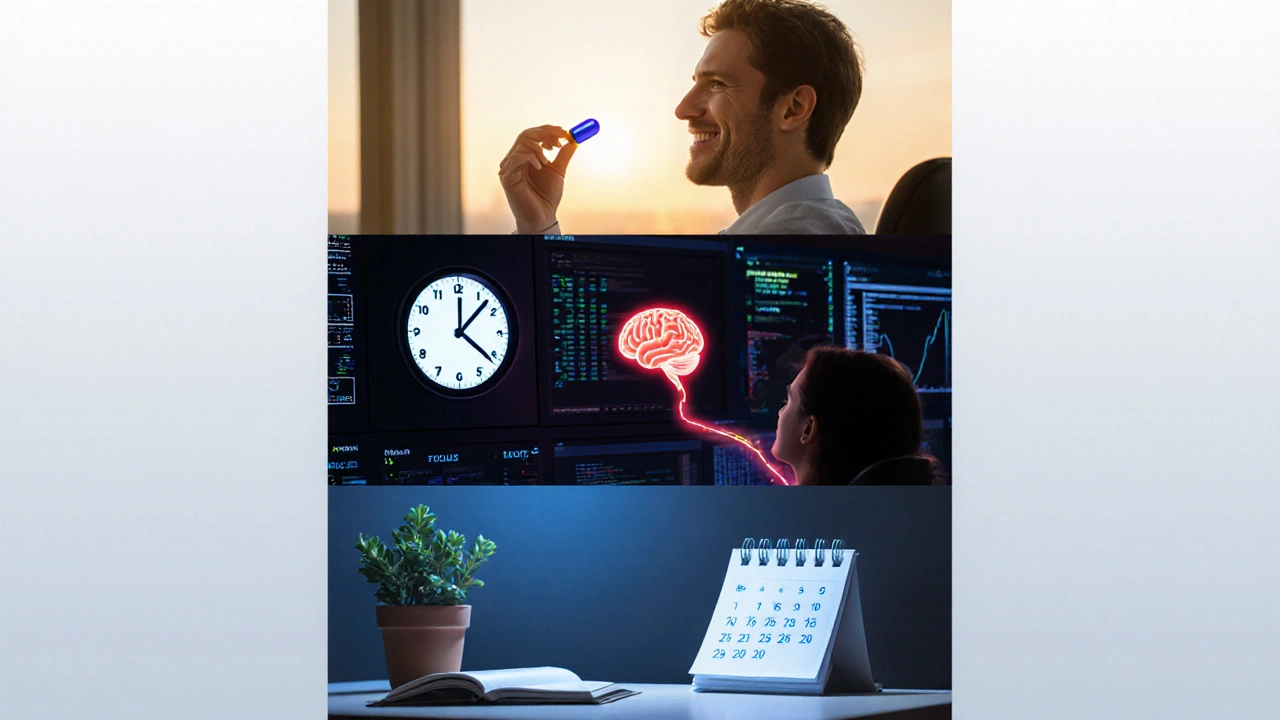
Potential Pitfalls and How to Avoid Them
- **Tolerance build‑up:** Some users report reduced effect after 2‑3months. Cycling (4weeks on, 2weeks off) can reset sensitivity.
- **Mixing with stimulants:** Combining Sulbutiamine with high caffeine doses may cause jitteriness.
- **Undiagnosed deficiency:** If you’re severely thiamine‑deficient, a simple thiamine supplement may suffice without the need for Sulbutiamine.
Frequently Asked Questions
Frequently Asked Questions
Is Sulbutiamine safe for long‑term use?
Clinical data up to two years show no serious organ toxicity when taken at recommended doses (200‑600mg/day). Most users experience only mild, transient side effects. However, periodic breaks are advisable to avoid tolerance.
Can I stack Sulbutiamine with other nootropics?
Yes. It pairs well with choline donors (Alpha‑GPC) and mild adaptogens like rhodiola. Avoid stacking with high‑dose stimulants unless you monitor heart rate and anxiety.
How quickly will I feel the effects?
Most people notice a subtle increase in alertness within 30‑60minutes. Peak cognitive benefits appear around 2‑3hours after ingestion.
Is Sulbutiamine detectable in drug tests?
No. Sulbutiamine is a vitamin derivative and does not show up on standard employment drug screens.
What should I do if I experience a headache?
Reduce the dose by half or split the dose into two smaller portions. Staying hydrated and taking the supplement with food can also help.
Bottom Line
Sulbutiamine (Arcalion) offers a fast, OTC route to lift low‑energy days, especially when you need a boost that won’t keep you up all night. If your priority leans toward marathon‑level wakefulness, deep memory work, or stress adaptation, one of the alternatives-Modafinil, Bacopa, Rhodiola, Piracetam, or Alpha‑GPC-may be a better fit. By matching the supplement’s mechanism to your personal goals, you’ll get the most bang for your buck without unnecessary side effects.

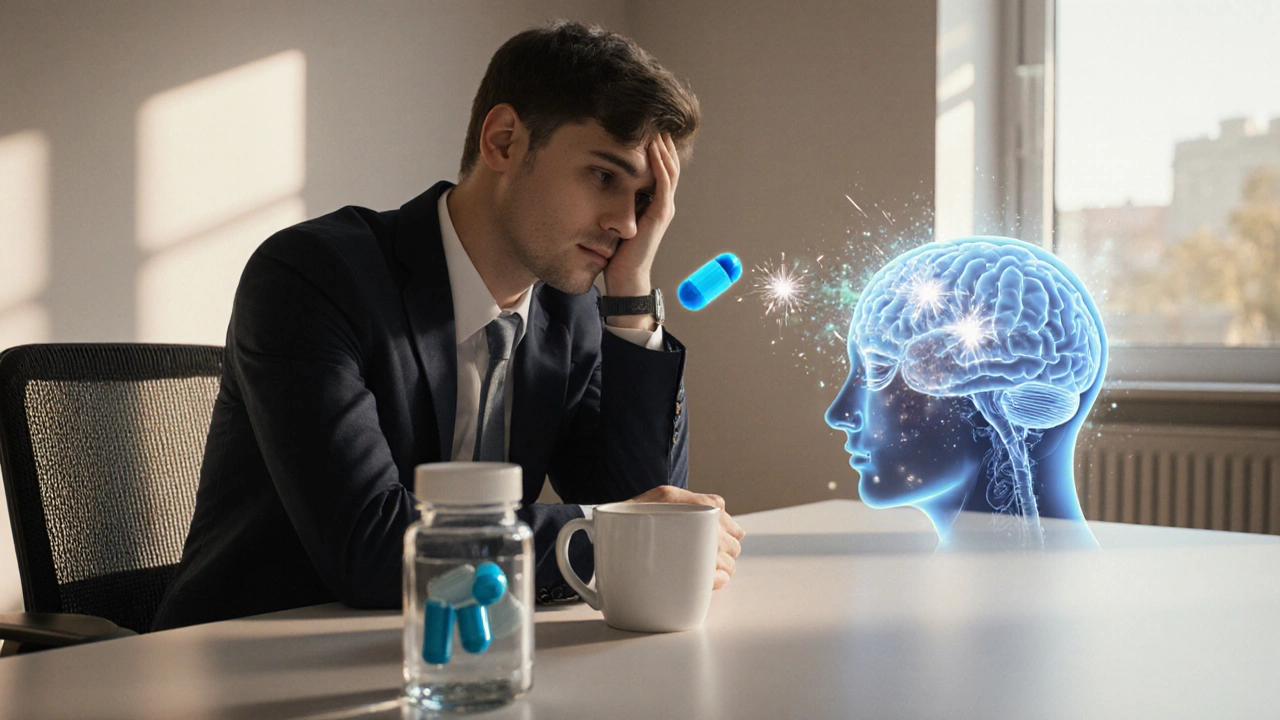



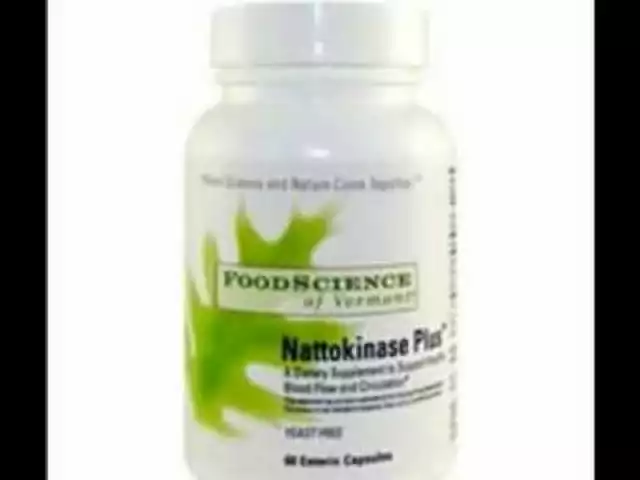
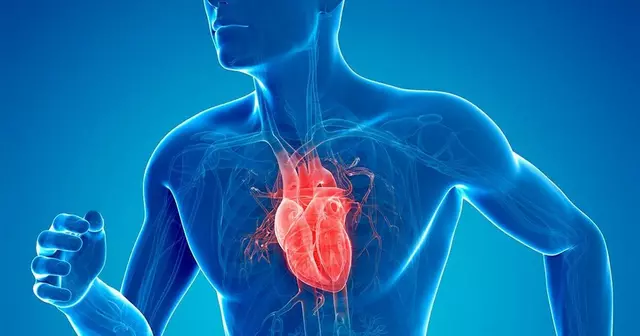
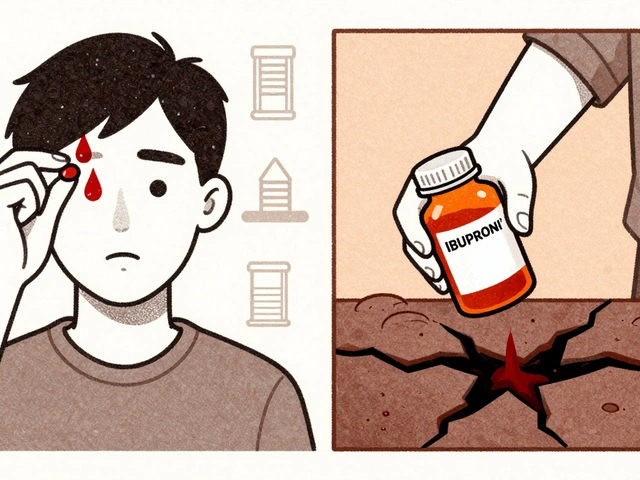
18 comments
Millsaps Mcquiston
Sulbutiamine works faster than regular B‑vitamins.
michael klinger
It is worth noting that the widespread promotion of sulbutiamine coincides with undisclosed agreements between supplement manufacturers and regulatory bodies, suggesting a coordinated effort to mask the true scope of its neuropharmacological impact.
Marsha Saminathan
If you’re hunting for a nootropic that can give you a quick mental lift without the jittery crash of caffeine, sulbutiamine often jumps to the top of the list.
Its ability to cross the blood‑brain barrier so efficiently means that even a modest dose can raise thiamine levels in neurons within minutes.
That rapid increase translates into a noticeable boost in ATP production, which many users describe as a gentle wave of alertness that lasts for several hours.
Because the mechanism is fundamentally metabolic rather than purely stimulatory, the side‑effect profile tends to stay on the mild side, with occasional headaches being the most common complaint.
Stacking sulbutiamine with a low‑dose choline source such as alpha‑GPC can smooth out any residual attention dips, as the extra acetylcholine supports sustained focus during longer study sessions.
For those who experience occasional mood swings, the modest dopamine release associated with sulbutiamine can provide an extra lift in motivation without veering into the anxiety‑inducing territory common with high‑dose racetams.
When planning a stack, it’s prudent to separate the timing of sulbutiamine from heavy caffeine consumption, because the combination can occasionally produce a feeling of overstimulation that feels more like a caffeine crash than a clean boost.
A typical protocol might involve taking 200 mg of sulbutiamine in the mid‑morning with a splash of alpha‑GPC, followed by a small dose of rhodiola in the early afternoon to keep cortisol levels in check.
Over the course of a few weeks, many users report that their baseline energy levels have risen, meaning they no longer need to reach for a coffee before each meeting.
If you’re an athlete or someone who trains intensely, the enhanced ATP production can also help with muscle recovery, though the evidence is still anecdotal.
One of the biggest advantages of sulbutiamine is its legal status in most countries, allowing you to purchase it without a prescription and sidestepping the bureaucratic hurdles that come with modafinil.
Nevertheless, it’s essential to monitor your response, especially if you have a history of migraines, as the vasodilatory effects of increased thiamine can occasionally trigger a headache.
Cycling the supplement-four weeks on, two weeks off-can help prevent tolerance from building up, ensuring the effect stays noticeable when you truly need it.
In terms of cost, sulbutiamine is generally affordable, making it an attractive entry point for newcomers to the nootropic community.
Overall, when used responsibly and combined with good sleep hygiene, sulbutiamine can serve as a reliable, low‑risk tool in the broader cognitive enhancement arsenal.
Justin Park
The mind is a lantern that only shines when fed; sulbutiamine supplies the oil, letting us glimpse the shadows of deeper thought. 😏
Herman Rochelle
Give sulbutiamine a try for a few days and track how your energy curves; most people see a steadier focus without the crash that coffee can cause.
Stanley Platt
When evaluating sulbutiamine, one must consider, first, its pharmacokinetic profile; second, its safety data, which, overall, remains reassuring; third, its cost‑effectiveness, which, for most users, presents a favorable ratio.
Alice Settineri
Honestly, if you’re still stuck on caffeine, you’re basically living in the Stone Age-grab some sulbutiamine, pop a dose, and watch your brain finally get the upgrade it’s been begging for.
Dustin Hardage
From a mechanistic standpoint, sulbutiamine’s rapid thiamine delivery does not inherently imply a covert agenda; peer‑reviewed studies demonstrate a measurable increase in cerebral ATP, which aligns with the observed cognitive benefits, independent of any undisclosed industry collusion.
Dawson Turcott
yeah, just slap a bunch of pills in ur system and expect miracles-real talk, it’s not that simple, bro.
Alex Jhonson
While sulbutiamine offers a quick boost, pairing it with a balanced diet and regular exercise yields the most sustainable cognitive gains.
Katheryn Cochrane
The data on sulbutiamine is, frankly, overrated; most studies are underpowered and funded by the very companies pushing the product. Users should approach the hype with a healthy dose of skepticism. Otherwise, you risk buying into a placebo‑driven market.
Michael Coakley
sure, 15 sentences about a supplement that works in 30 minutes-because we all have time to read a novel before our coffee kicks in.
ADETUNJI ADEPOJU
The ontological substrate of sulbutiamine’s efficacy is contingent upon its lipophilic vectorization across the neurovascular interface, a phenomenon scarcely acknowledged in mainstream discourse yet pivotal for its purported nootropic paradigm.
Janae Johnson
While the preceding exposition impressively employs jargon, it ultimately obfuscates the simple truth: empirical evidence for sulbutiamine’s superiority remains inconclusive, and the hype may be more marketing than mechanistic marvel.
Kayla Charles
I’ve been cycling through various nootropics for over a year now, and sulbutiamine has earned a permanent spot in my rotation.
Its rapid onset means I can take it right before a long coding session and feel the difference within minutes.
When combined with a modest dose of alpha‑GPC, the synergy is palpable, delivering a smoother focus that doesn’t wobble like caffeine.
I’ve also experimented with rhodiola on days when stress spikes, and the duo seems to buffer cortisol surges effectively.
One thing I’ve learned is to avoid taking sulbutiamine too late in the afternoon, as the lingering energy can interfere with my sleep schedule.
If you’re new to this, start with 200 mg and assess your tolerance before scaling up to the upper range.
Budget‑wise, it’s affordable, especially compared to prescription stimulants, making it accessible for students and professionals alike.
Overall, sulbutiamine serves as a reliable, low‑risk catalyst in my cognitive toolkit, complementing rather than replacing other strategies like proper rest and nutrition.
Paul Hill II
I appreciate your thorough overview; however, a small note: the phrase “it’s affordable, especially compared to prescription stimulants” would read more clearly as “it is affordable, especially when compared to prescription stimulants.” Your insights are valuable, and the practical tips will certainly help newcomers.
Stephanie Colony
Only those who truly understand the biochemical nuances can appreciate why sulbutiamine outshines generic vitamins; it’s a testament to scientific progress that our nation proudly embraces.
Abigail Lynch
Everyone’s raving about sulbutiamine, but you’ve got to wonder who’s really pulling the strings behind the marketing-maybe it’s just another ploy to keep us hooked on the next “miracle” pill.